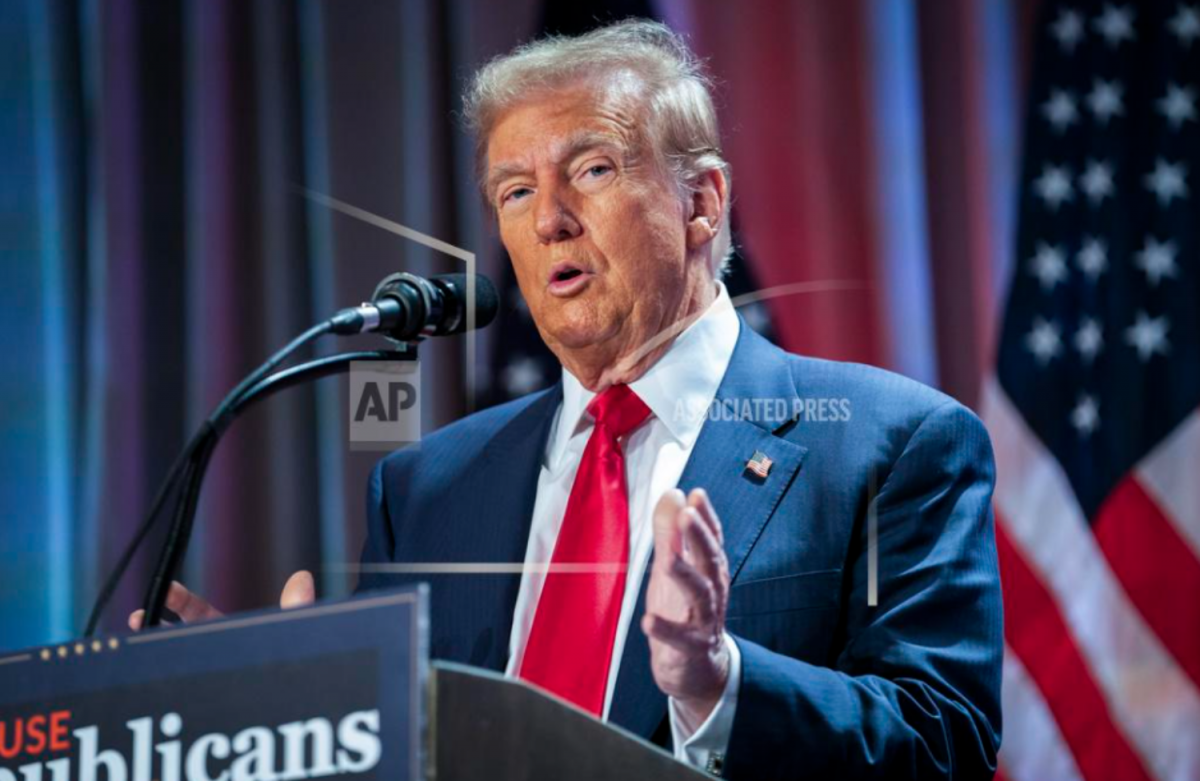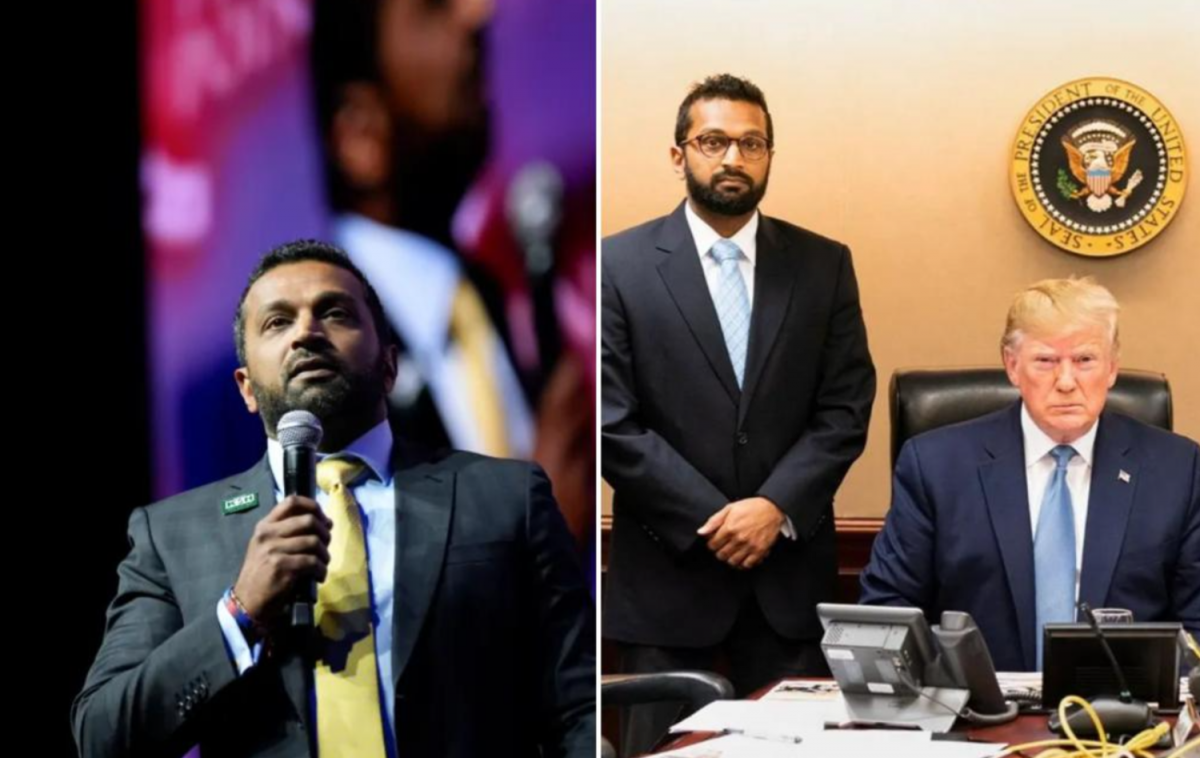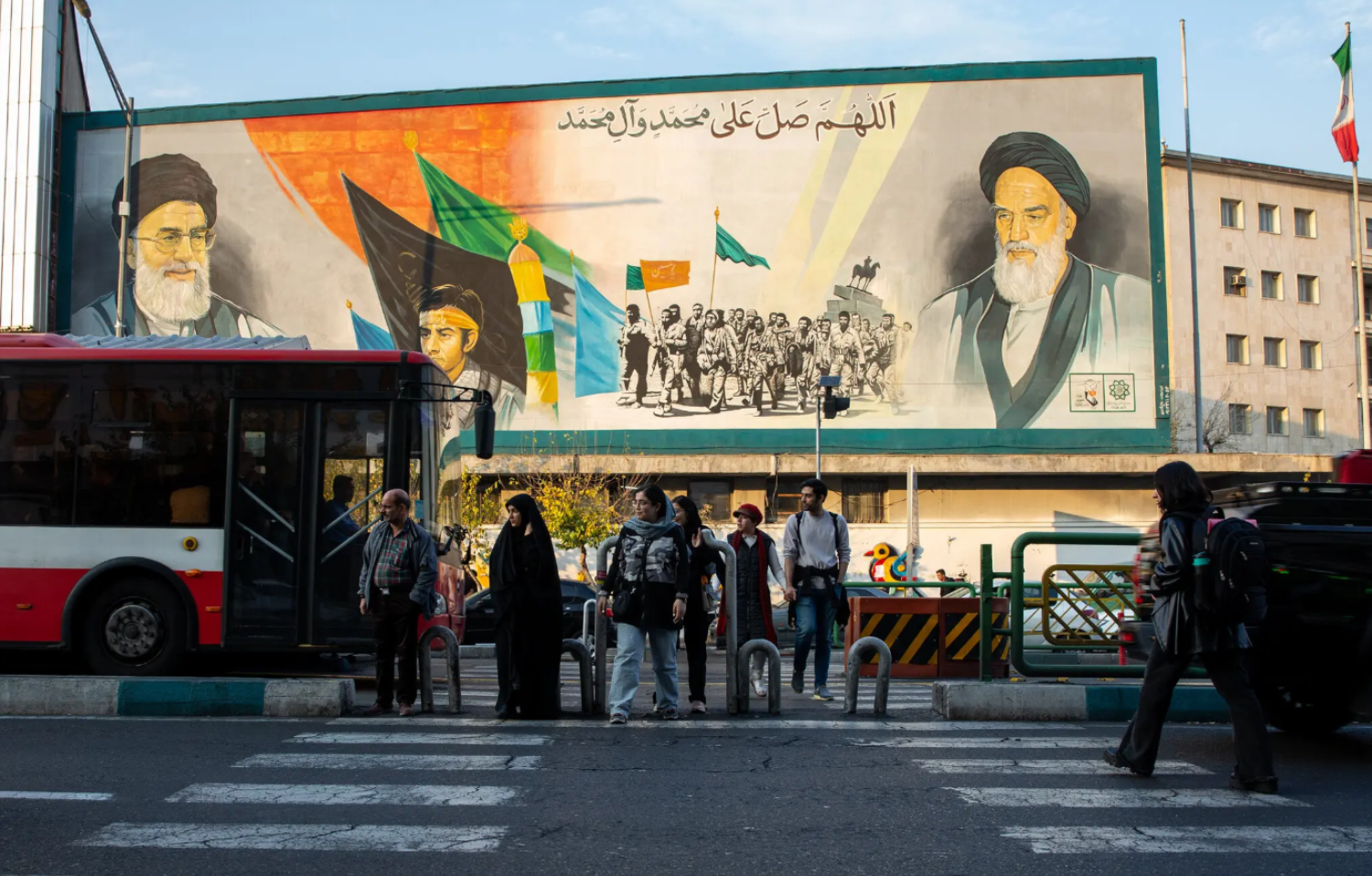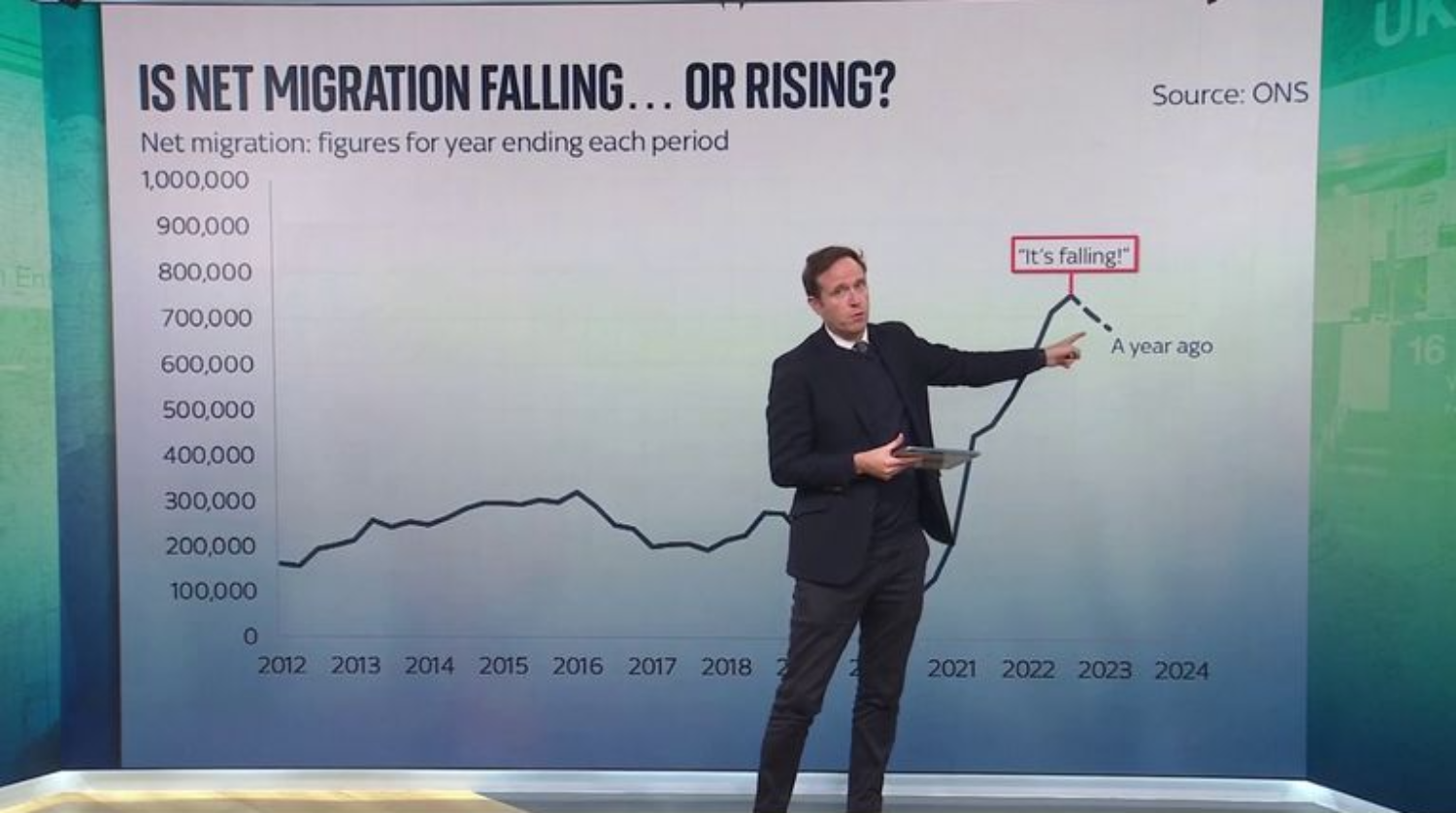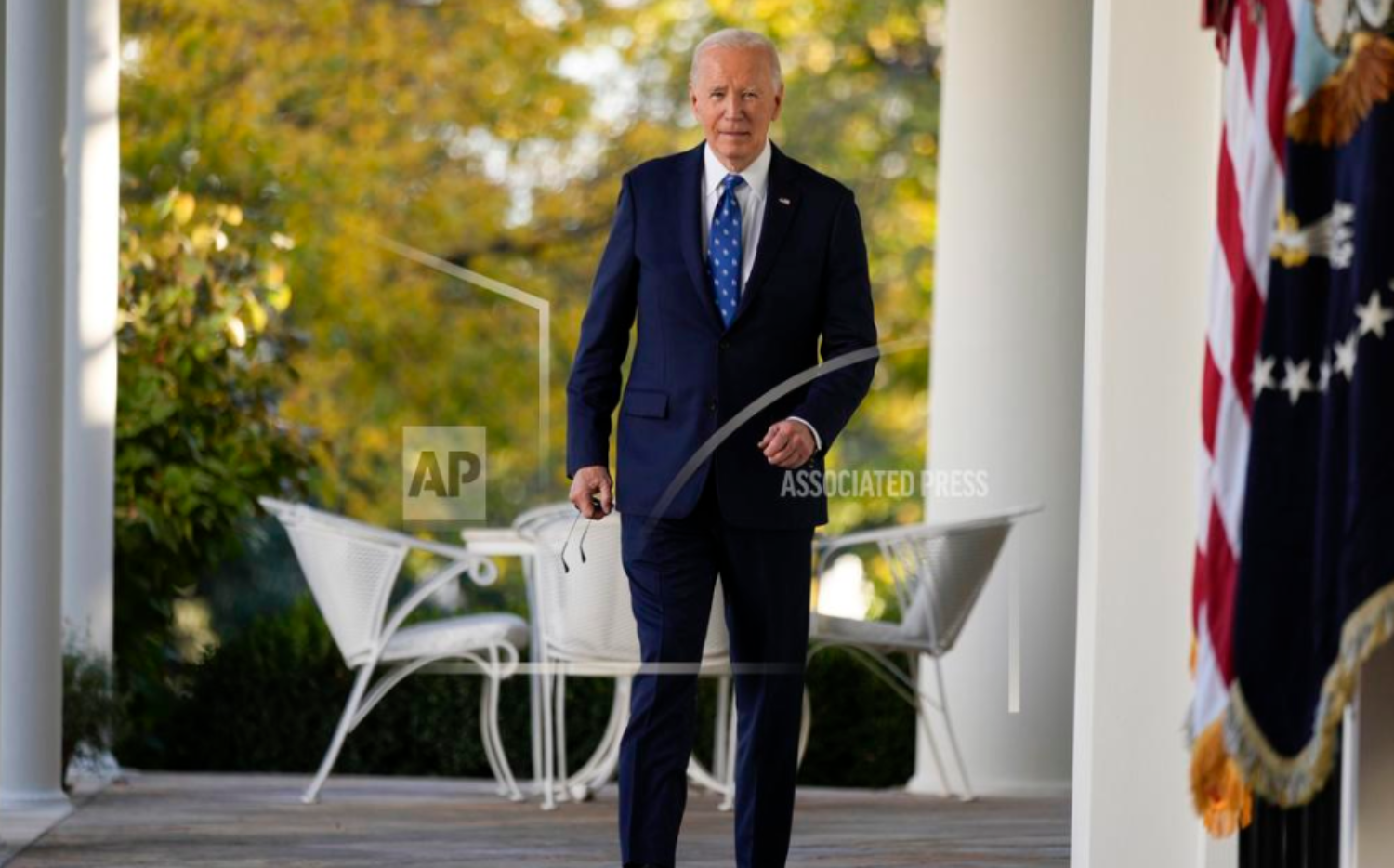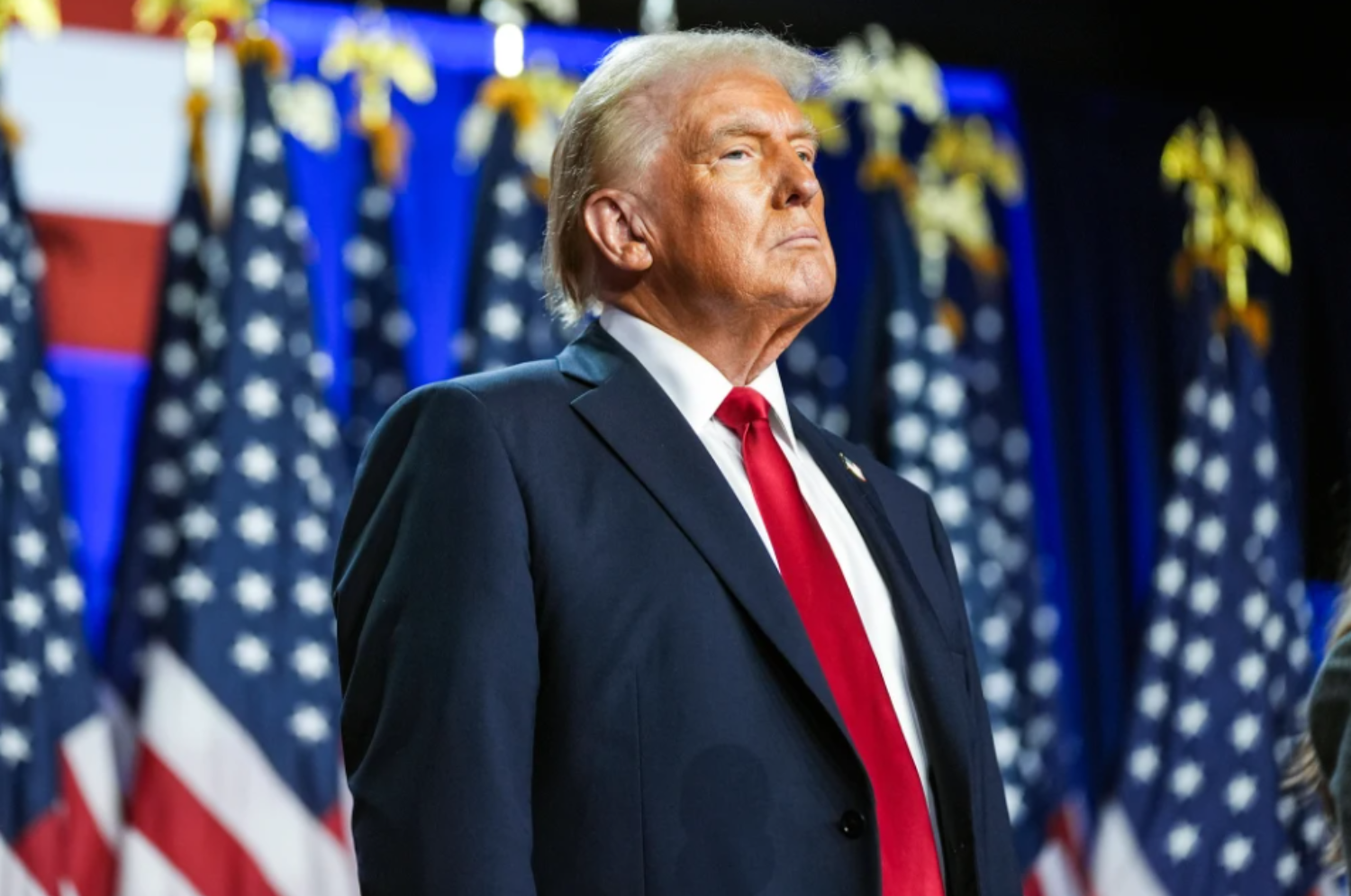-
Posts
10,807 -
Joined
-
Last visited
Content Type
Events
Forums
Downloads
Quizzes
Gallery
Blogs
Everything posted by Social Media
-
Allegations against Gregg Wallace, the prominent TV presenter of *MasterChef* and *Eat Well for Less*, have intensified as a former producer has come forward, accusing him of inappropriate conduct. Georgia Harding, who worked on *MasterChef* between 2014 and 2015 and later on *Eat Well for Less*, has publicly raised concerns about his behavior, claiming it was dismissed at the time as part of his personality. Harding alleges that Wallace undressed in front of colleagues despite having access to a private changing room and frequently made inappropriate sexual jokes in the presence of the crew and show participants. She stated, “It was like ‘oh, that’s Gregg.’” According to her, this casual dismissal of his actions created a culture where his behavior was normalized. Harding further described how Wallace often spoke about sex, flaunted his physique, and maintained an overly familiar demeanor with some contestants on set. “He would show off his ‘muscles’ from having a personal trainer. It made us feel uncomfortable,” she said. The controversy has also extended to interactions with participants. One woman who appeared on *Eat Well for Less* shared her own experience, saying Wallace behaved in a way that made her and others uneasy. “He was too close to me and made inappropriate comments about sex,” she revealed. On one occasion, Wallace reportedly questioned why people weren’t laughing at his jokes, remarking they should because he was the “talent.” These allegations are part of a growing list of accusations against Wallace. Earlier this year, he stepped back from his high-profile role on *MasterChef* after the BBC launched an inquiry into claims of sexual misconduct. The investigation began following a formal complaint made to the broadcaster by a woman regarding an incident from over a decade ago. In this case, Wallace allegedly held the woman’s head and mimicked a sex act while she was kneeling to clean a mark off his trousers. One person who reportedly witnessed this alleged incident has spoken with both the BBC and journalists. Harding’s claims and other allegations have prompted *The Telegraph* to investigate Wallace’s behavior for over four months. The outlet has interviewed more than 20 people, including former contestants and production staff, who have alleged inappropriate conduct by Wallace across various BBC programs. Among these allegations is a claim by a former *MasterChef* contestant that Wallace groped her while she was cooking on the show. She told *The Sun* that she moved away after the incident, only for Wallace to call her a “stupid cow” when she later scalded her hand. The BBC has yet to comment publicly on the ongoing investigation, which has placed Wallace’s future in television under intense scrutiny. Despite the growing chorus of accusations, the network’s handling of these claims remains a focal point for critics, particularly given Harding’s assertion that her initial complaints were dismissed. “Nothing was done,” she said, highlighting what she described as an acceptance of Wallace’s behavior at the time. As the inquiry unfolds, these revelations again raise pressing questions about accountability within the entertainment industry and the mechanisms in place to address allegations of misconduct. Based on a report by Daily Telegraph | Sky News 2024-12-02
-
Two buses carrying students from a London Jewish school were attacked at a bus stop by a swarm of around ten. The group of Jewish school children experienced a terrifying ordeal in north London when their school buses were attacked by teenagers throwing rocks and hurling antisemitic abuse. The incident occurred on Wednesday afternoon as students from Jews' Free School (JFS) in Kenton were traveling home on two number 688 buses operated by Uno. The attack unfolded in High Street, Edgware, where witnesses reported that a large group of teenagers from another school began throwing "big heavy rocks" at one of the buses. The situation escalated when four teenagers boarded the bus, shouting profanities and making offensive remarks targeting the Jewish students. One witness recounted to the *Jewish Chronicle*, “They were also swearing at us, saying, ‘F*** Israel, nobody likes you. F*** off, you b****es.’” The chaos left many children cowering under their seats, while others fled the bus in fear. Another student described the atmosphere as "completely terrifying," noting that the attackers appeared to film the incident on their phones, compounding the distress. Despite the gravity of the attack, the bus driver, reportedly a temporary employee, did not immediately report the incident. Instead, it was a parent of one of the affected children who alerted the police. The Metropolitan Police have since launched an investigation into what they describe as a "potential hate crime." A spokesperson stated, “Officers in Barnet are investigating a potential hate crime after a school bus was targeted on High Street, Edgware. Stones were thrown at the bus before a group of other students got on and made antisemitic remarks towards those on board. Officers from the safer transport team have spoken to the victims involved, as well as their parents, and enquiries are ongoing.” Superintendent Lorraine Busby-McVey, responsible for neighbourhood policing in Barnet, condemned the incident, calling it “distressing” and emphasizing that such behaviour is “completely unacceptable.” She added, “There is no place for hate crime either here or across the rest of London, and a thorough investigation is underway.” Transport for London (TfL) has expressed its alarm over the attack, vowing to support the investigation. “No one should ever have to fear or experience abuse when using our network,” TfL said in a statement. As of now, no arrests have been made in connection with the attack, leaving parents and the community concerned about the safety of students. The investigation continues, with authorities urging anyone with information to come forward. This incident has heightened concerns about the rise of antisemitic incidents and the safety of Jewish communities in London. Parents, students, and advocacy groups are calling for swift justice and measures to prevent similar occurrences in the future. Based on a report by Daily Mail 2024-12-02 Related Topic: Teenage Girl Seriously Injured in Antisemitic Attack in London’s Stamford Hill
-
In a bold statement on Truth Social, President-elect Donald Trump has vowed to impose a 100% tariff on BRICS countries if they pursue plans to reduce reliance on the U.S. dollar in global trade. Trump’s remarks reflect a staunch defense of the dollar’s dominance in international markets and a warning to nations considering alternatives. “The idea that the BRICS countries are trying to move away from the Dollar while we stand by and watch is OVER,” Trump declared. He emphasized that the U.S. would demand a clear commitment from BRICS members to refrain from creating or supporting any currency intended to replace the U.S. dollar. “They will face 100% tariffs and should expect to say goodbye to selling into the wonderful U.S. Economy,” Trump wrote, adding, “They can go find another ‘sucker!’” The BRICS alliance—comprising Brazil, Russia, India, China, and South Africa—was formed to enhance economic cooperation among major non-Western economies. Since its first official summit in 2009, the group has focused on challenging the dominance of Western financial systems. At the 2023 summit, the alliance expanded, adding Egypt, Ethiopia, Iran, Saudi Arabia, and the United Arab Emirates. The issue of "de-dollarization," a key topic at the recent summit, seeks to reduce the U.S. dollar’s influence in international trade. While the idea has gained traction, experts remain skeptical about its feasibility. Analysts cite significant challenges within BRICS, including infighting among members and stark differences in their economic policies and financial systems. Trump dismissed the possibility of the BRICS countries succeeding in replacing the dollar in international trade, warning any nation attempting such a move to "wave goodbye to America." His remarks underscore the U.S.’s strategic interest in maintaining the dollar’s central role in global financial systems, a position that has provided Washington with significant economic and geopolitical leverage for decades. Representatives for the BRICS countries have not responded to Trump’s comments, but the group’s plans to explore alternatives to the dollar continue to generate debate. Despite internal challenges, the expanding coalition signals a growing push among non-Western nations to redefine global trade dynamics, a development that the incoming U.S. administration appears determined to counter. Trump’s threat to impose sweeping tariffs is a clear message that his administration views any move to undermine the dollar as a direct challenge to American economic dominance. As the world watches the unfolding dynamics between the U.S. and BRICS, the stakes for international trade and diplomacy continue to rise. Based on a report by NBC News 2024-12-02
-
Boris Johnson, in his characteristic style, has launched a scathing critique of Labour leader Sir Keir Starmer, focusing on the recent downfall of Transport Secretary Louise Haigh. Johnson paints a vivid picture of Haigh’s situation, describing her as a symbol of a government he views as riddled with deceit and hypocrisy. The saga begins with Haigh, whose youthful misjudgment has come to define her current predicament. A decade ago, she worked in the insurance industry at Aviva and was convicted of fraud after falsely claiming her mobile phone had been stolen to secure a replacement. Johnson, with characteristic flair, describes her as a young woman swept up in the consumerist desire for the latest gadgets, a scenario many might empathize with. "She wanted the same snazzy device as her friends," Johnson writes, adding that the ruse seemed "painless, victimless, and virtually cost-free." Yet the truth emerged when Aviva discovered one of the supposedly stolen phones in her home, leading to a criminal conviction. Johnson spares no sympathy for Haigh, dismissing her as “just a casual everyday fraudster, a swindler.” He also questions Starmer’s decision to appoint her, stating, “Starmer picked a fraudster for his Cabinet because he is the fraudster-in-chief. And he knows, in his heart, that the whole government is a fraud.” Johnson’s critique extends far beyond Haigh. He accuses the Labour government of breaking promises, particularly regarding taxation and fiscal responsibility. He recalls Labour’s pledge not to increase taxes on working people, which was later followed by a national insurance hike, contributing to inflation and economic strain. Johnson contends, “They attempted to justify this tax raid by falsely claiming that there was a black hole in the nation’s finances.” On foreign policy, Johnson lambasts the Labour government’s approach to Ukraine and their decision to hand over the Chagos Islands, a move he attributes to “Lefty spite and hatred of Britain’s colonial past.” He claims Labour’s actions have alienated allies and weakened Britain’s global standing. Johnson also revisits Labour’s stance on Brexit, mocking Starmer’s recent suggestion that Brexit contributed to high immigration numbers. He counters that Brexit is “the only mechanism” allowing Britain to control its borders, criticizing Labour’s abandonment of the Rwanda plan, which he argues was deterring illegal migration. Starmer himself is not spared from personal criticism. Johnson accuses him of hypocrisy, noting Starmer’s relationship with millionaire Waheed Alli, who reportedly provides him with suits and spectacles. “He portrayed himself as a pharisaical opponent of sleaze and corruption,” Johnson writes, referencing Starmer’s purported efforts to deceive the public. In closing, Johnson highlights Labour’s latest policies on the NHS, describing them as measures that will “oppress elderly people, divide families, agonize doctors, and enrich lawyers.” He claims these policies reflect a government out of touch with the needs of the people, focused instead on ill-conceived initiatives. Despite his sharp critique, Johnson ends on a note of optimism for his party, celebrating the Conservative lead in the polls under Kemi Badenoch’s leadership, the first such lead since his tenure as Prime Minister. This moment, for Johnson, signals a potential turning of the tide in British politics. Based on a report by Daily Mail 2024-12-02
-
President-elect Donald Trump has announced Kash Patel as his choice to lead the FBI, a move that signals significant changes ahead for the bureau. This decision, coming two months before Trump’s inauguration, casts doubt over the tenure of current FBI Director Christopher Wray, whose term is set to expire in 2027. Trump praised Patel in a post on Truth Social, describing him as “a brilliant lawyer, investigator, and ‘America First’ fighter” dedicated to exposing corruption, defending justice, and safeguarding Americans. “He played a pivotal role in uncovering the Russia, Russia, Russia Hoax, standing as an advocate for truth, accountability, and the Constitution,” Trump wrote. He emphasized Patel’s potential to address pressing national issues, including crime, drug trafficking, and border security, promising that the FBI under Patel would restore its core values of fidelity, bravery, and integrity. Wray has faced criticism from Trump, who accuses him of mishandling politically sensitive investigations. Trump was particularly vocal about the FBI’s raid of Mar-a-Lago, which led to an indictment for allegedly retaining classified documents. He also referenced Wray’s comments regarding a 2020 rally incident, which Trump claims revealed ignorance about the broader threats facing the nation. Furthermore, Trump accused Wray of “lying to Congress” about President Joe Biden’s cognitive and physical health. These tensions have fueled speculation about Wray’s future, as he would need to resign or be dismissed for Patel to assume the role. Kash Patel, a seasoned attorney and public servant, brings a wealth of experience to the table. A former public defender and Justice Department attorney specializing in national security, Patel also held prominent roles in Trump’s first administration. He served as a National Security Council official, senior adviser to the acting Director of National Intelligence, and chief of staff to the acting Secretary of Defense. A vocal critic of what he views as governmental overreach, Patel has long opposed federal investigations targeting conservatives. His writings, including his book *Government Gangsters*, advocate for an overhaul of the Justice Department and intelligence agencies. Patel has called for the dismissal and prosecution of officials who misuse their authority for political purposes. Trump has hailed the book as a “blueprint” for his administration’s future reforms. Speaking on his podcast, Patel expressed his intent to bring transparency to the FBI. He suggested that Trump could expose documents revealing past misconduct and hinted at high-profile disclosures, mentioning the controversial “Epstein list” and allegations involving music mogul Sean “Diddy” Combs. Patel’s nomination, however, will require Senate confirmation, a process likely to draw sharp partisan debate. His deep loyalty to Trump and advocacy for reforming the FBI have made him a polarizing figure, celebrated by Trump’s allies and criticized by his opponents. The announcement underscores Trump’s commitment to reshaping federal institutions and addressing what he perceives as systemic corruption. As Patel prepares for the confirmation process, all eyes will be on the unfolding drama surrounding the future of the FBI. Based on a report by NYP 2024-12-02
-
Sarah Holman’s journey from a dedicated council employee to a passionate advocate for women’s rights highlights the complex interplay of inclusion policies and personal safety concerns. The 56-year-old, a mother of two, had long enjoyed her role at Bracknell Forest Council in Berkshire, regenerating land for housing. Yet, her principles and past experiences drove her to make a difficult decision: resigning after 12 years of service due to the council’s shift to gender-neutral toilet policies. For Sarah, the policy change resurfaced a buried trauma. More than three decades earlier, while on holiday abroad, she had been sexually assaulted in a unisex restroom. “I’d walked into the cubicle, and a man followed me, blocking the doorway and gesturing that he wanted sex,” she recalls. “He lunged at me, putting his hands on me. I was too startled to fight back.” The assault ended only when another man passed by, but the memory lay dormant until the council’s decision triggered a visceral response. “I saw the sign on the door, and memories came flooding back,” Sarah shares. “I had an anxiety attack—palpitations, a racing heart. It was the first time I’d felt unsafe at work.” Her concerns deepened when the council adopted a “Trans and Non-Binary Policy” that effectively removed all single-sex toilets in the office. While Sarah supports equality, she believes the move neglected women’s rights. “All a male has to do is say, ‘I’m going through gender reassignment,’ and they can access women’s toilets. That’s really insulting to women.” Sarah’s personal experiences added weight to her objections. In 2000, she suffered a miscarriage at work. Reflecting on that harrowing ordeal, she says, “I was in a toilet cubicle, crying and in pain. I can’t imagine how much worse it would’ve been in a shared space with men. Women need privacy for moments like this.” Despite raising her concerns, Sarah found little support. “The council said sharing toilets with males was no different than sharing a lift. If staff objected, they’d be referred to counseling. It felt dismissive.” When the council formalized its policies in mid-2023, Sarah felt compelled to resign. The council’s use of the Progress Pride flag also troubled Sarah. She saw its prominence—as screensavers, meeting backdrops, and outside the building—as disproportionate. “It felt like virtue signaling, prioritizing trans rights over women’s,” she explains. Her suggestion to include other flags, like one for menopause awareness, was met with indifference. Sarah’s departure has not been the end of her fight. She is taking the council to an employment tribunal, alleging discrimination for her gender-critical views. “Councils across the country are gaslighting women, brushing aside our concerns in favor of ideological policies. This has to stop.” Bracknell Forest Council defends its stance, with Chief Executive Susan Halliwell stating that the policies aim to promote equality and diversity. The council maintains that it offers both single-sex and gender-neutral facilities. Yet for Sarah, this is inadequate. “In their efforts to be inclusive, they’re excluding women. Women’s dignity, privacy, and safety are being compromised.” Her decision to step away from a job she loved was not easy, but Sarah stands firm in her belief that women’s voices deserve to be heard. “I’m not a radical feminist, just an ordinary woman standing up for what’s right.” Based on a report by Daily Mail 2024-11-30
-
Fran Unsworth, the former head of BBC News, has shared her reservations about the potential implications of the broadcaster’s Verify unit, a fact-checking initiative launched under her successor, Deborah Turness. Speaking at the Voice of the Listener and Viewer conference in London, Unsworth questioned whether positioning Verify as the BBC's hub for truth and accuracy might inadvertently cast doubt on the credibility of the organization’s broader journalism efforts. “I think if you want to set your stall out and say what you’re about, it’s probably a pretty good branding exercise,” Unsworth remarked. However, she added, “My anxieties are… What does it say about the rest of the journalism? Is that not true, then?” Despite these concerns, she acknowledged that the unit's objectives are likely being achieved, describing the initiative as “broadly successful.” The Verify unit has been both praised and criticized since its launch. While its aim to combat misinformation and provide transparent, evidence-based reporting aligns with the BBC’s public service mission, detractors argue that it could unintentionally highlight flaws in other areas of the corporation's output. Defending the initiative, Jonathan Munro, deputy chief executive of BBC News, addressed criticisms during the conference, dismissing claims of political bias and errors within Verify’s fact-checking processes. He also defended the controversial decision to cancel the long-running BBC programme HARDTalk, attributing the move to declining viewership. Munro suggested reallocating resources to projects like Verify would better serve the public. However, Verify has faced scrutiny recently, including accusations of political slant. Last week, the unit came under fire for its reporting on inheritance tax changes affecting farmers. It initially cited Dan Neidle, a former Labour activist, as an “independent tax expert,” later removing that designation without acknowledgment. Danny Cohen, a former BBC Television director, has also criticized Verify, accusing the unit of an “unhealthy obsession with stories related to Israel.” His comments reflect broader concerns about editorial priorities within the BBC’s expanding focus on fact-checking and investigative reporting. The Verify unit’s introduction is part of a broader effort to reinforce trust in the BBC’s journalism amid an era of widespread misinformation. However, as Unsworth’s comments suggest, its branding and positioning may provoke unintended consequences by raising questions about the BBC’s traditional news output. This balancing act between innovation and preserving the reputation of established journalism remains a challenge for the corporation as it navigates its role in an increasingly polarized media landscape. Based on a report by Daily Telegraph 2024-11-30
-
The BBC is once again grappling with allegations of misconduct involving one of its prominent stars, this time Gregg Wallace, the long-time presenter of *MasterChef*. However, the revelations of alleged inappropriate behavior only emerged following investigative work by external journalists, particularly *The Telegraph*, rather than through the corporation’s internal processes. Gregg Wallace has thanked people for their "support" in a video posted on Instagram. He stepped down from MasterChef over allegations he made inappropriate sexual comments on a range of programmes over 17 years. Additional allegations have emerged from various individuals who worked with Wallace. Kirsty Wark, a *Newsnight* host, is among 13 individuals accusing Wallace of inappropriate "sexualized" behavior during filming. Wark recalled two instances during the 2011 *Celebrity MasterChef* series where Wallace shared jokes and comments of a sexual nature in front of contestants and crew, describing his remarks as “really, really in the wrong place.” “It was completely one-way traffic,” Wark said. “I think people were uncomfortable. It was something I really did not expect to happen.” Adding to the tension, Scottish broadcaster Aasmah Mir, who participated in the 2017 *Celebrity MasterChef* series, posted a cryptic social media message: “Always keep your receipts.” While it is unclear whether Mir has filed a complaint, her statement has further fueled speculation about Wallace's behavior. The BBC now finds itself under scrutiny not only for the alleged actions of its star but also for its failure to uncover and address these issues internally. Critics argue that such revelations should not rely on the diligence of outside media organizations. With Wallace’s *MasterChef* career hanging in the balance and the corporation facing yet another scandal involving sexual misconduct, the BBC’s handling of these allegations is likely to come under intense public and institutional review. As the inquiry proceeds, questions persist about the corporation’s ability to safeguard its workplace and respond to concerns effectively. For now, the spotlight remains on Wallace and the broader culture within the BBC that allowed these claims to surface only through external pressure. Based on a report by Daily Mail | Daily Telegraph | Sky News 2024-11-30
-
In a groundbreaking discovery, researchers have uncovered evidence that two distinct species of ancient human relatives, *Homo erectus* and *Paranthropus boisei*, walked the same ground at the same time approximately 1.5 million years ago. The footprints, preserved in dried mud near a lake in northern Kenya, were left within hours or days of one another, raising intriguing questions about the interactions and relationships between these species. The discovery, detailed in a study published in *Science*, offers the first direct evidence that these species coexisted in the same location. By analyzing the footprints’ shapes and strike patterns, researchers concluded that the tracks were made by two different species. “We think that these individuals, these two species that were there, probably would have been aware there were members of another species nearby,” said Kevin Hatala, associate professor of biology at Chatham University and lead author of the study. “They would have seen each other and recognized each other as different species, which raises questions about what those interactions would have been like. Were they competitors? Were they totally OK with each other being there?” The study adds to the growing understanding among anthropologists that ancient human relatives not only coexisted but also likely interacted. Previously, fossil remains of both species were found in the region, showing that they lived there during overlapping time periods. However, these footprints provide direct evidence of their simultaneous presence. While both species were bipedal, their walking styles differed significantly. *Homo erectus* exhibited humanlike anatomy from the neck down, used stone tools, and possibly cooked with fire. This species had a varied diet that likely included meat and managed to spread across Asia, Indonesia, and other regions. Its resilience allowed it to survive for over a million years after these footprints were made, disappearing from the fossil record a little over 100,000 years ago. Hatala described *Homo erectus* as “a very successful species” and a potential direct ancestor of modern humans. Homo erectus In contrast, *Paranthropus boisei* was characterized by a smaller brain, massive chewing muscles, and large molars. This species is thought to have specialized in eating tough foods such as hard nuts and fibrous plants. Its evolutionary journey ended much sooner than that of *Homo erectus*, representing an evolutionary dead end. “Human evolution is complicated and messy, and there’s lots of experimentation. It’s not a straight line,” said William Harcourt-Smith, associate professor of anthropology at Lehman College, who was not involved in the study. Paranthropus boisei The conditions under which the footprints were preserved also provide valuable insights. The tracks, untouched by other animals and uncracked before being buried in sediment, suggest they were left in quick succession. “The sediment protected them and prevented them from cracking and allowed them to be entered into the geologic record,” Hatala explained. One possible reason the two species coexisted peacefully in the area could be their differing diets, which may have reduced competition for resources. However, researchers also speculate that they might have had antagonistic relationships or competed for other resources. The discovery highlights that ancient human species interacted and coexisted across different habitats over millions of years. These findings illuminate the complex and intertwined pathways of human evolution. While species like *Paranthropus boisei* represent evolutionary dead ends, others like *Homo erectus* laid the groundwork for modern humans. The discovery of these footprints serves as a poignant reminder of the diverse and interconnected nature of our ancestral history. Based on a report by NBC News 2024-11-30
-
A group of travelers embarking on what they hoped would be the adventure of a lifetime to Antarctica has turned to drastic measures after mechanical issues derailed their plans. Passengers aboard the luxury cruise ship SH Diana, operated by Swan Hellenic, have begun a hunger strike to demand full refunds after their voyage was cut short due to an engine failure. The SH Diana, a state-of-the-art vessel just a year into operation, encountered problems with one of its electric motors, forcing the cancellation of key stops at South Georgia and the entirety of its planned exploration of Antarctica. This abrupt change of plans has left the ship traveling at a sluggish 6 knots (11 km/h) as it heads toward Ushuaia, Argentina, where it is scheduled to dock on Saturday. Engineers will board the vessel in Ushuaia to address the issue before its next scheduled departure on December 3. Swan Hellenic, a company specializing in luxury cruises to remote destinations, prides itself on offering "boutique 5-star ships" designed for polar expeditions. However, for the 170 passengers aboard the SH Diana, including about ten British travelers, the current experience has fallen far short of expectations. One anonymous passenger expressed disappointment to *The Times*, acknowledging that while the decision to abandon Antarctica for safety reasons was justified, the company’s handling of the situation has left much to be desired. “To go to Antarctica is a trip of a lifetime, and this specific sailing made it achievable for many on board as it’s a repositioning sailing that had attractive deals,” the passenger said. The ill-fated journey, which began in Cape Town on November 13, was meant to be a 20-night repositioning cruise to Ushuaia, where the ship would prepare for its Antarctic summer season through March 2025. The itinerary included planned visits to renowned Antarctic destinations such as Elephant Island, Paulet Island, Yankee Harbour, and Deception Island. In an attempt to placate disgruntled passengers, Swan Hellenic has offered a partial refund of 50 percent or a 65 percent credit for future cruises, valid for two years. Additionally, complimentary excursions in Ushuaia have been promised to passengers as they await their departure on December 3. Despite these gestures, many passengers remain dissatisfied. Reports from aboard the ship indicate growing tension, with some passengers calling for better compensation. “Many of the passengers are very angry, and it was getting nasty yesterday,” said a source on the ship. They added that the company “needs to make a better offer to quell the continuing rising anger.” Among the passengers, a group of Russians has initiated a hunger strike, displaying signs demanding full refunds. Written complaints to Swan Hellenic have also surfaced, underscoring the frustration of those onboard. For travelers who embarked on this journey with dreams of exploring the icy expanse of Antarctica, the experience has turned into an ordeal marked by delays, dissatisfaction, and mounting unrest. As the ship inches toward Ushuaia, the passengers’ demands for fair treatment and accountability continue to resonate. Based on a report by The Times & Sunday Times 2024-11-30
-
Facing a host of domestic and international pressures, Iran appears to be shifting its rhetoric and strategy, moving away from combative postures towards a more conciliatory approach. Recent diplomatic moves, including engaging with Hezbollah to encourage a cease-fire with Israel, initiating dialogue with Elon Musk as a gesture towards President-elect Donald J. Trump’s network, and scheduling talks in Geneva with European countries, mark a significant departure from its earlier aggressive stance. In late October, Iran had seemed poised to launch a large-scale retaliatory strike on Israel. A deputy commander of the Islamic Revolutionary Guards Corps stated emphatically, “We have never left an aggression unanswered in 40 years.” However, within weeks, the tone had softened, with actions suggesting a preference for de-escalation. This pivot stems from a combination of challenges both at home and abroad. Iran’s recalibration was influenced by multiple factors, not least of which was the outcome of the U.S. election. According to five Iranian officials, including a member of the Revolutionary Guards, and two former officials, Trump’s November 5 victory triggered strategic concerns. Trump’s unpredictable nature and his previous "maximum pressure" campaign on Iran left the country wary of provoking a hostile U.S. administration. The officials, who spoke anonymously due to the sensitivity of the matter, explained that Iran suspended plans to attack Israel to avoid further straining relations with a U.S. leadership that was already stacking its cabinet with pro-Israel, anti-Iran figures. Domestically, Iran is grappling with economic turmoil. The national currency has been steadily devaluing against the dollar, and a looming energy crisis threatens to exacerbate hardships as winter approaches. On the regional front, Hezbollah, Iran’s closest and most vital ally, suffered significant losses in Lebanon, undermining its influence and raising tensions among the displaced Shia population who look to Iran for support. Sanam Vakil, the Middle East director at Chatham House, highlighted how this shift in tone aligns with Iran's need to safeguard its broader interests. “It all came together, and the shift in tone is about protecting Iran’s interests,” she noted. The decision reflects a pragmatic effort to adapt to an evolving geopolitical landscape and the changing dynamics in Washington. Seyed Hossein Mousavian, a former Iranian diplomat and nuclear negotiator now at Princeton University, emphasized Iran’s strategic patience. “Iran is now applying restraint to give Trump a chance to see whether he can end the Gaza war and contain Netanyahu,” he said, referencing Israel’s prime minister. “If this happens, it will open the path for more comprehensive negotiations between Tehran and Washington.” The plight of Hezbollah, however, remains a pressing concern for Iran. Reports of widespread displacement and growing dissatisfaction among Shia Lebanese communities have added pressure on Tehran to recalibrate its approach. Mehdi Afraz, director of a research center at Baqir al-Olum University, candidly acknowledged Iran’s misjudgment of Israel’s military capabilities, remarking that war with Israel is not akin to “a game on PlayStation.” Iran’s evolving stance underscores the complexities of navigating both domestic crises and international threats. While its actions suggest a desire to lower tensions, the underlying challenges remain formidable, requiring a delicate balance between strategic restraint and regional ambitions. Based on a report by NYT 2024-11-30
-
Meta CEO Mark Zuckerberg recently dined with President-elect Donald Trump at Trump’s Mar-a-Lago resort, signaling a surprising thaw in what was once a tense relationship between the two. Historically, the tech mogul and Trump have not shared a cordial rapport, with tensions peaking when Trump was barred from Meta platforms Facebook and Instagram following the Capitol riots in 2021. Trump, in turn, had publicly threatened Zuckerberg with jail if he interfered in the 2024 presidential election. The dinner appears to mark a significant shift in their relationship. A Meta spokesperson told the BBC, "Mark was grateful for the invitation to join President Trump for dinner and the opportunity to meet with members of his team about the incoming administration. It’s an important time for the future of American innovation." Trump’s stance on Zuckerberg has softened in recent months. In August, the president-elect wrote in a book that Zuckerberg would “spend the rest of his life in prison” if he attempted to influence the 2024 election. However, by October, Trump struck a more conciliatory tone, acknowledging during a podcast interview that it was "nice" Zuckerberg was "staying out of the election." Trump also expressed gratitude for a personal call from Zuckerberg following an assassination attempt on his life. Zuckerberg, too, has appeared to adopt a more accommodating approach. His suspension of Trump from Meta platforms was lifted earlier this year. Additionally, Zuckerberg has publicly expressed regret for Meta’s decision to de-emphasize content related to allegations against Hunter Biden prior to the 2020 election, a move that some conservatives criticized as biased. He has also pledged to avoid further contributions to electoral infrastructure, after a $400 million donation in 2020 sparked controversy. Zuckerberg has maintained that his intentions were non-partisan and aimed at supporting fair elections. While the specifics of the Mar-a-Lago dinner remain undisclosed, the timing of the meeting is noteworthy. Meta continues to face significant regulatory challenges, including an antitrust case filed by the Federal Trade Commission (FTC) in 2020. Strengthening ties with the incoming administration could potentially influence how these challenges unfold. Despite these developments, Zuckerberg’s budding relationship with Trump has been overshadowed by the president-elect’s close alliance with Elon Musk. The owner of X (formerly Twitter) has not only endorsed Trump but has also contributed over $100 million to his campaign. Musk’s influence has grown to such an extent that he has been appointed to lead a new Department of Government Efficiency, known as DOGE, granting him significant sway over both government policy and regulatory matters. As Trump continues to build his administration, the evolving dynamics between big tech leaders and the president-elect offer a glimpse into how innovation and regulation may shape under his leadership. For Zuckerberg, the dinner at Mar-a-Lago might represent more than just a reconciliation—it could be a strategic move to secure Meta’s future amidst increasing scrutiny. Based on a report by BBC 2024-11-30
-
Texas is evaluating a plan to redirect buses carrying migrants to federal detention centers rather than sanctuary cities, aiming to facilitate quicker deportations, according to a source in the Lone Star State government. This initiative would expand Operation Lone Star, the state's ongoing effort to deter illegal crossings at its border. “We are always gonna be involved in border security so long as we’re a border state,” the source stated. “We spent a lot of taxpayer money to have the level of deterrent that we have on the border and we can’t just walk away.” The plan, not yet approved by Governor Greg Abbott, involves chartering buses from border towns and rerouting them to Immigration and Customs Enforcement (ICE) facilities, bypassing cities such as New York, Chicago, and Denver, which had previously received migrants under the busing program. By collaborating with ICE, Texas aims to expedite processing and deportation while receiving federal reimbursement for transportation costs. “That’s a way we could be involved in that, and of course they would reimburse us for paying for the [bus] contract,” the source explained. Tom Homan, the incoming border czar under President-elect Donald Trump, expressed interest in the proposal and hinted at a potential partnership. “I look forward to discussing that with them,” Homan said, referring to his upcoming talks with Texas officials. “We’re going to help them finish this job and secure Texas, and we’re going to work in partnership. And [Abbott] doesn’t have to worry about this administration suing him … to secure the Texas border.” Texas first launched its migrant busing program in 2022, sending nearly 120,000 individuals to major cities like New York, Washington, D.C., Philadelphia, Los Angeles, and Chicago. The initiative was intended to highlight border challenges to the rest of the nation. New York City alone received approximately 45,900 migrants during that period. The program paused during the summer of 2023 after illegal crossings into Texas declined, a decrease attributed to enhanced state border security efforts. The recent election of Donald Trump signaled a shift in national border policy, as voters rejected what Texas State Representative Brian Harrison described as President Biden’s “radical open borders policies” that “made less Americans safe.” In preparation for the incoming Trump administration, Texas is already offering land for new deportation centers along the border. Texas Land Commissioner Dawn Buckingham confirmed the state’s readiness. “My office has identified several of our properties and is standing by ready to make this happen on Day One of the Trump presidency,” Buckingham said during a border visit this week. Homan emphasized that the first wave of deportations would focus on illegal migrants deemed threats to public safety and national security. This prioritization aligns with Texas’s renewed commitment to safeguarding its border and its communities, an effort underscored by its determination to partner with federal authorities for efficient enforcement. Based on a report by NYP 2024-11-30
-
A 27-year-old man from Bradford was arrested this morning (Wednesday, November 27, 2024) on suspicion of voyeurism and harassment, following a series of reports involving women being followed, filmed, and harassed in Manchester City Centre. This arrest is believed to be the first in the UK linked to viral social media videos that appear to show women on nights out, some in vulnerable situations. The investigation revealed that alongside publicly posted videos, additional disturbing content was discovered on paywalled accounts. These included footage suspected to depict non-consensual nudity and upskirting. Authorities initially became aware of the issue after public concerns were raised about the videos, prompting appeals for those directly affected to come forward. Many women responded, sharing how these incidents had caused fear and undermined their sense of safety while out at night. The videos primarily captured scenes around the Peter Street and Deansgate areas of Manchester. Chief Inspector Wiggins further explained, "Everyone has the right to feel safe as they enjoy a night out, and these videos have made people, particularly women, not feel like that, which we can’t tolerate. Filming in public is legal, however, where this filming crosses the line into offences such as upskirting, stalking or harassment, it’s important that we don’t allow that behaviour." Highlighting proactive measures, he added, "Every Friday and Saturday there are approximately 60 officers on patrol around our city centre hotspots, also with support from partners, charities, and volunteers. Collectively, we are all on the lookout for any behaviour that appears predatory in nature, proactively challenging that behaviour and safeguarding anyone who is vulnerable." As Manchester prepares for the festive season, Wiggins reassured the public of the safety measures in place. "Particularly as we enter one of our busiest periods in the year, Christmas and New Year, I want to reassure the public that Manchester City Centre’s nightlife is safe, and they can expect us to take action against anyone who threatens that." The man is currently in custody for questioning as the investigation continues. Authorities have encouraged anyone personally impacted by the content of these videos to come forward, ensuring their experiences are recorded and aiding ongoing inquiries. Based on a report by Greater Manchester Police 2024-11-30
-
Sky News host Erin Molan delivered a scathing critique of UN Special Rapporteur Francesca Albanese following remarks made during an interview on *Piers Morgan Uncensored*. The heated discussion revolved around Albanese’s hesitation to explicitly acknowledge reports of rape that occurred during the October 7 attacks in Israel and its periphery. The topic, fraught with distressing details, has sparked widespread controversy and intense emotions as ongoing investigations seek to verify reports of sexual violence amid the broader conflict. Albanese’s reluctance to confirm the allegations during the interview has drawn criticism from commentators who argue that such a position undermines the gravity of the claims. As the situation continues to unfold, debates persist over the role of international officials and their responsibility in addressing allegations of atrocities with clarity and sensitivity. Molan’s reaction underscores the frustration felt by many who believe that the acknowledgment of such crimes should be unequivocal in the face of compelling evidence. Based on a report by Sky News 2024-11-30
-
When it comes to net migration in the UK, confusion reigns supreme. Is it going up? Or is it going down? The answer, as it turns out, is both – but with a heavier lean towards the former. The complexity lies not in the debate itself but in the data underpinning it, which is often revised and reinterpreted. To understand this dynamic issue, we must delve into how migration figures are calculated and why they’re subject to significant shifts. Take, for example, net migration data from the 12 months preceding June 2022. A year ago, the Office for National Statistics (ONS) reported this figure as 672,000. At the time, it was strikingly high, drawing considerable attention. Yet, the ONS also noted that net migration appeared to be on the decline, with this number lower than the prior quarter. For government ministers and the media, this was cause for optimism, as it allowed them to claim that migration was decreasing. However, as is often the case with provisional data, this figure did not hold. The ONS later revised its estimates, revealing that more people entered the UK and fewer left than originally believed. The result? The net migration figure for the same period was recalculated to a staggering 907,000. Far from falling, migration had actually been rising. This volatility highlights a critical point: migration data, like much of the statistics produced by the ONS, is subject to frequent revisions. Initial estimates, though widely reported, can differ dramatically from final figures, as new information emerges. It’s also important to note who these migrants are. Contrary to some public perceptions, the majority are not individuals arriving via small boats but rather people coming legally to study or work. Legal migration has reached historic levels, with more people arriving in the UK than at any other time in British history. Fast forward to today, and the ONS’s latest figures suggest net migration is falling, down to 728,000 in the year to June 2023—a drop of nearly 20% from the previous year. Data from the Home Office, such as visa approvals, supports this trend, indicating a possible slowdown in immigration. Yet caution is warranted. This is not the first time recent data has suggested a decline in net migration, only for subsequent revisions to tell a different story. Six months ago, the ONS claimed a 10% drop in net migration over the previous year. That estimate has since been adjusted to show a negligible decrease of just 1%. The lesson here is that while migration statistics can appear definitive, they are often more uncertain than they seem. Each new release should be taken with a measure of skepticism, particularly when provisional data is used to shape public discourse. In sum, the migration debate is less about whether numbers are rising or falling and more about the reliability of the data itself. For now, it’s safe to say that while net migration may be stabilizing, it remains at levels unprecedented in the UK’s history—a trend with profound implications for the country’s economy and society. Based on a report by Sky News 2024-11-30
-
In a significant development, Syrian rebel forces have reportedly entered Aleppo, marking the first time opposition fighters have reached the country’s second-largest city since government forces recaptured it in 2016. The rebel advance comes after a surprise offensive launched earlier this week, which saw the capture of several villages and the reactivation of a conflict that had largely been stagnant in recent years. Russians and troops loyal to the Russian-backed Syrian dictator Assad continue to retreat in northern Syria as rebels push into Aleppo, Syria's second largest city. Here, rebels have seized a massive depot of Russian weapons, ammunition, and military equipment. The rebels are advancing so rapidly that OSINT analysts cannot keep up with mapping the changes. The Syrian civil war, which erupted during the Arab Spring in 2011, began as a crackdown on pro-democracy demonstrations against Assad’s regime. It escalated into a full-scale conflict, with the Free Syrian Army emerging as a prominent rebel force against government troops. Over a decade of war has devastated the nation, resulting in more than 300,000 civilian deaths and displacing millions, according to United Nations estimates. As the battle for Aleppo reignites, the fragile balance in Syria faces new challenges, threatening to further entrench the divisions that have plagued the country for years. Based on a report by CNN | X 2024-11-30
-
President Joe Biden marked his final Thanksgiving as president with a heartfelt message of gratitude and reflection, expressing appreciation for the trust placed in him over the past four years. Sharing his thoughts on the social platform X, Biden wrote, “With hearts full of gratitude: Happy Thanksgiving, America. Jill and I are so grateful for the trust you’ve placed in us these past four years — serving you has been the honor of our lives.” Biden’s Thanksgiving remarks came just days after he participated in the White House’s annual turkey pardoning ceremony, a lighthearted tradition marking the start of the holiday season. On Monday, he granted pardons to two turkeys named Peach and Blossom, who will now reside at the Minnesota Agricultural Interpretive Center as education ambassadors. Adding a touch of humor, Biden noted that the turkeys enjoyed a road trip set to the tune of “Livin’ on a Prayer.” “This event marks the official start of the holiday season here in Washington,” Biden said during the ceremony. “It’s also my last time to speak here as your president during this season and give thanks and gratitude. So let me say to you — it’s been the honor of my life, I am forever thankful.” Spending the Thanksgiving holiday in Nantucket, Massachusetts, Biden is also honoring his tradition of calling members of the military on the day, a gesture reflecting his deep respect for the armed forces. Vice President Kamala Harris joined him in extending holiday gratitude to those in service, according to the White House. The tone of Biden’s message stood in stark contrast to the statement issued by former President Donald Trump, who offered a divisive Thanksgiving post on Truth Social. Trump’s message read, “Happy Thanksgiving to all, including to the Radical Left Lunatics who have worked so hard to destroy our Country, but who have miserably failed, and will always fail... the great people of our Nation just gave a landslide victory to those who want to MAKE AMERICA GREAT AGAIN!” As the holiday season progresses, Biden and Trump have publicly agreed to a peaceful transfer of power in January, marking a notable shift from the contentious aftermath of the 2020 election. Earlier this week, Biden signed a memorandum of understanding to ensure his Cabinet transitions seamlessly with their successors. Biden’s Thanksgiving message served as a reminder of his gratitude and belief in the resilience of the American spirit. In his parting words, he reaffirmed his enduring faith in the nation: “We keep going. We keep the faith in America.” Based on a report by The Hill 2024-11-30
-
An Arizona man, Manuel Tamayo-Torres, has been charged with making threats against President-elect Donald Trump and his family. Authorities allege that Tamayo-Torres posted videos online almost daily, in which he accused Trump and members of his family of kidnapping and sex-trafficking his children. Federal court documents reveal that he also displayed an AR-15-style rifle in some of these videos, further heightening concerns over his intentions. According to the documents, one of Tamayo-Torres's videos was recorded at the Desert Diamond Arena in Glendale, Arizona, the location of a Trump rally on August 23. While the court papers refer to "Individual 1" instead of explicitly naming Trump, the description as a "former president and current president-elect" leaves no ambiguity. In a video posted to Facebook on November 13, Tamayo-Torres is seen holding what appears to be a white AR-15-style rifle with a 30-round magazine. He issues a threat that is both alarming and, at times, difficult to decipher. "You see [Individual 1], this from far away, [Individual 1]... As soon I hear that leave that barrel, I’m already on the foot run after you [Individual 1]," he says, according to the court documents. He also mentions law enforcement personnel, describing them as “little boys and their little badges, off the books,” and claims they cannot chase him effectively because of their equipment. In another video posted on November 21, Tamayo-Torres escalates his rhetoric, stating that Trump’s “whole family is going to die.” He goes on to make disparaging remarks, adding, “You’re Caucasian nothing. You’ll earn nothing. Aryan money, that’s all you have. You’re a low-life scum. I’ll spit in your f-----g face motherf---er, and if they give me a chance, I’m going to f-----g bury you myself." Tamayo-Torres was arrested in Southern California on Monday. He faces one count of making threats against the president-elect and four counts of making false statements during the purchase of a firearm. His attorney has not yet commented on the charges. The court documents also reveal Tamayo-Torres’s history of violent behavior. In 2003, he was convicted of felony assault and served five years in a California state prison. Additionally, in 2022, his ex-wife obtained a protection order against him. This case underscores ongoing concerns about threats of political violence in the United States. It also highlights the role of social media in enabling individuals to disseminate threatening messages, often with alarming reach. Tamayo-Torres's arrest serves as a stark reminder of the challenges faced by law enforcement in addressing such threats effectively. Based on a report by NBC News 2024-11-30
-
Keir Starmer is facing mounting scrutiny over efforts to finalize a treaty ceding sovereignty of the Chagos Islands to Mauritius, with accusations that he aims to push the agreement through before the potential return of Donald Trump as U.S. president. The agreement has become a political flashpoint, drawing criticism from Mauritius’s newly elected leadership and allies of Mr. Trump, particularly over its implications for strategic military interests. The deal, crafted by the previous Mauritian administration, has been met with skepticism by Navinchandra Ramgoolam, Mauritius’s new prime minister. During his campaign, Ramgoolam and his supporters labeled the agreement a “sell-out” and even accused the former administration of “high treason,” claiming it was a rushed decision influenced by political desperation. Since his election just two weeks ago, Ramgoolam has publicly voiced “reservations” about the treaty’s terms, further casting doubt on its viability. The treaty also faces resistance in Washington. Marco Rubio, a prominent ally of Mr. Trump and a candidate for the role of U.S. Secretary of State in a future Trump administration, has called the deal a “serious threat” to American national security. He warned it could undermine the strategic importance of the joint U.S.-UK military base on Diego Garcia, the largest of the Chagos Islands. Rubio’s comments have amplified concerns about the treaty’s impact on military posture in the Indian Ocean, a region critical to Western interests amid increasing Chinese influence. Labour announced in October that it would relinquish sovereignty over the Chagos Islands, ending more than two centuries of British control. However, with Pravind Jugnauth, the Mauritian leader who negotiated the deal, now ousted from office, the agreement remains unsigned and in political limbo. Labour has argued that the treaty was necessary to secure the continued operation of Diego Garcia after the International Court of Justice deemed the UK’s administration of the islands “unlawful.” Opponents of the deal are optimistic that a Trump presidency could derail its ratification. Nevertheless, Starmer’s government has taken proactive steps to salvage the agreement. Jonathan Powell, Starmer’s incoming national security adviser, has been dispatched to Mauritius and Washington to address concerns and stabilize the negotiations. Despite reports suggesting a mid-January deadline, Downing Street has denied imposing a strict timeline. A spokesperson emphasized, “We haven’t set a timeline to ratify the deal, and we don’t intend to put a timeline on it. Obviously, it’s in everyone’s interests to progress the deal as quickly as possible.” Foreign Secretary David Lammy defended the agreement, dismissing criticism from opposition voices as political maneuvering. “This is incredibly sad,” Lammy said. “I know and I’m sad that there’s been so much politicking about this.” He argued that the treaty represented a “very good deal” and downplayed suggestions that it was on the brink of collapse. However, Conservative MP Sir John Whittingdale reiterated Ramgoolam’s scathing campaign rhetoric, which described the agreement as treasonous and a betrayal of Mauritius’s sovereignty. Lammy responded by highlighting the realities of electioneering: “Both you and I have said things during an election in order to get elected. He did not say that yesterday.” As the Chagos Islands dispute continues, it remains a contentious issue not only between the UK and Mauritius but also among international stakeholders concerned with the geopolitical stability of the Indian Ocean region. Based on a report by Daily Mail 2024-11-30
-
Doctors in the UK have been urged to stop prescribing traditional blue inhalers for asthma, a long-standing staple of treatment for millions. This recommendation is part of updated NHS guidance, which highlights both the environmental impact of these devices and their limited effectiveness in addressing the root causes of asthma. The National Institute for Health and Care Excellence (NICE) has instead encouraged the use of newer “combination inhalers” that provide more comprehensive treatment. Blue inhalers, also known as short-acting beta agonist (SABA) reliever inhalers, have been used for decades to alleviate immediate asthma symptoms. By relaxing the muscles in the airways, they help patients breathe more easily during asthma attacks. However, NICE has emphasized that these inhalers merely provide symptomatic relief without addressing the inflammation that underpins asthma. According to their guidelines, patients over the age of 12 should transition to combination inhalers, which pair a fast-acting reliever with a low dose of corticosteroids to reduce airway inflammation and prevent attacks. A significant driver behind the push to phase out blue inhalers is their environmental impact. These devices rely on a hydrofluorocarbon propellant to deliver medication into the lungs, a substance with a high greenhouse gas effect. Patients are now being educated about the environmental cost of these inhalers through informational leaflets, which compare their carbon footprint to that of a 75-mile car journey. Dry powder inhalers, which do not use gas-based propellants, are being presented as an eco-friendly alternative for environmentally conscious patients. The NHS has previously reported that inhaler emissions account for about 3% of its total carbon footprint, with around 60 million inhalers prescribed annually in England alone. Of these, more than 17 million were blue inhalers prescribed to nearly four million patients last year. NICE has warned that this widespread reliance on blue inhalers may not only exacerbate environmental harm but also increase the risk of severe asthma attacks and even fatalities. Evidence suggests that using three or more blue inhalers annually could indicate poorly controlled asthma and heighten the risk of complications. The new guidelines have been well-received by healthcare professionals. Cath Cooksey, a lead pharmacist with the Kent and Medway Integrated Care Board, explained, “Asthma is primarily an inflammatory airway disease, and although these blue inhalers might give the feeling of relief, they do not treat the underlying cause. Overuse of blue inhalers can indicate a deterioration of asthma and even using three or more a year has been linked to a higher risk of attacks. The takeaway to colleagues in the NHS and patients is clear — blue inhalers do not treat asthma and can mask more severe disease.” Specialist doctors have echoed these concerns, noting that combination inhalers not only reduce inflammation but also result in fewer severe asthma attacks. These devices combine corticosteroids, which address the root cause of asthma, with a fast-acting reliever to ensure immediate symptom relief when needed. NICE’s guidance reflects a shift in asthma management, aiming to improve patient outcomes while reducing environmental harm. This move marks a critical step in modernizing asthma treatment, encouraging more sustainable practices, and promoting a deeper understanding of effective disease management among both patients and healthcare providers. Based on a report by The Times 2024-11-29
-
The Metropolitan Police have launched a criminal investigation into individuals accused of enabling Mohamed Al Fayed in carrying out decades of sexual abuse, as 90 additional victims have recently come forward. Scotland Yard has identified more than five suspects alleged to have assisted the late Harrods owner in what detectives described as “horrendous abuse.” The investigation marks a significant escalation following the emergence of allegations from a total of 111 victims, the youngest reportedly just 13 years old. Before Al Fayed’s death in 2023 at the age of 94, police had been aware of 21 allegations against him between 2005 and 2023, including four accusations of rape, 16 of sexual assault, and one related to trafficking. Despite being arrested in 2013 over a rape claim, Al Fayed was never charged. The case gained renewed attention in September after the BBC aired an investigation into the Egyptian businessman’s alleged predatory behavior. The broadcast prompted a surge of allegations, with 150 individuals coming forward to provide information, including 90 new victims. Detectives are now examining claims of rape, sexual assault, and trafficking that span nearly four decades, from 1977 to 2014. Scotland Yard is conducting an internal review of how it handled allegations against Al Fayed during his lifetime. Questions have arisen about potential corruption within the police force, with reports suggesting officers may have accepted bribes to ignore claims of abuse, particularly from Harrods employees. All previous investigations into Al Fayed are being re-evaluated as part of the ongoing inquiry. In a statement, the Metropolitan Police revealed the scale of the investigation, noting that detectives have already examined 50,000 pages of evidence. The force admitted shortcomings in supporting victims in the past, with a spokesperson saying, “We know that contact with and support for some victims at the time could have been improved. Only after completing this comprehensive review will we fully understand what could have been done differently.” The Crown Prosecution Service had been approached five times between 2005 and 2023 regarding Al Fayed, yet no charges were ever filed. Now, the investigation is not only focused on Al Fayed’s alleged crimes but also on those suspected of facilitating his abuse. Detective Chief Superintendent James Clayman stated that the inquiry aims to determine the roles individuals played in enabling Al Fayed’s offending and the opportunities they may have had to protect victims. Appealing directly to victims, Clayman said, “I know you may have faced years of silence or disbelief, but you are not alone. We are here, ready to support you and ensure your voice is heard.” This comprehensive investigation reflects Scotland Yard’s commitment to addressing past failures and seeking justice for victims. The inquiry underscores the importance of accountability, not just for the accused but also for any individuals who may have played a part in perpetuating the abuse. Based on a report by BBC 2024-11-29
-
President-elect Donald Trump launched a scathing critique of *The New York Times* early Tuesday, accusing the publication of grossly misrepresenting him in its reporting and demanding an apology. Trump expressed his grievances in a series of posts on Truth Social, labeling the outlet’s coverage as “so wrong” and accusing it of intentionally trying to tarnish his reputation. “Will the failing New York Times apologize to its readers for getting years of ‘Trump’ coverage so wrong?” he wrote. Trump alleged that the publication knowingly publishes false information. “They write such phony ‘junk,’ knowing full well how incorrect it is, only meaning to demean.” Among his specific grievances, Trump targeted Maggie Haberman, a national political correspondent for the paper known for her extensive coverage of Trump dating back to his career as a New York real estate magnate. “A third rate writer and fourth rate intellect, writes story after story, always terrible, and yet I almost never speak to her,” Trump said of Haberman, who co-authored a recent *Times* piece that seemed to ignite his ire. The article in question, published late Monday, detailed an internal investigation conducted by Trump’s transition team. The investigation reportedly examined allegations that top aide Boris Epshteyn solicited payments from candidates for high-ranking Cabinet positions to gain favor with Trump. The claims, which Epshteyn has denied, drew significant attention and added fuel to Trump’s ongoing feud with the press. Trump’s indignation extended beyond Haberman to *The New York Times* as a whole, criticizing what he described as a disregard for accuracy. “They do no fact checking, because facts don’t matter to them,” Trump asserted, emphasizing what he sees as a consistent bias against him in the paper’s reporting. The president-elect also pointed to his historic 2016 election victory as evidence of the disconnect between *The New York Times* and the American public. “I don’t believe I’ve had a legitimately good story in the NYT for years, AND YET I WON, IN RECORD FASHION, THE MOST CONSEQUENTIAL PRESIDENTIAL ELECTION IN DECADES,” he declared, adding, “WHERE IS THE APOLOGY?” Trump’s fiery comments come amid ongoing tension between his administration and major media outlets, particularly those he perceives as hostile. This latest exchange highlights the sharp divisions between Trump and the press as he prepares to assume the presidency. Based on a report by The Hill 2024-11-29





